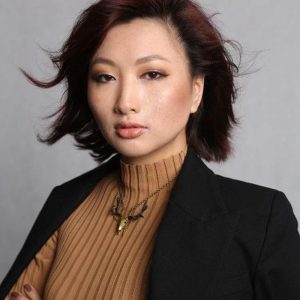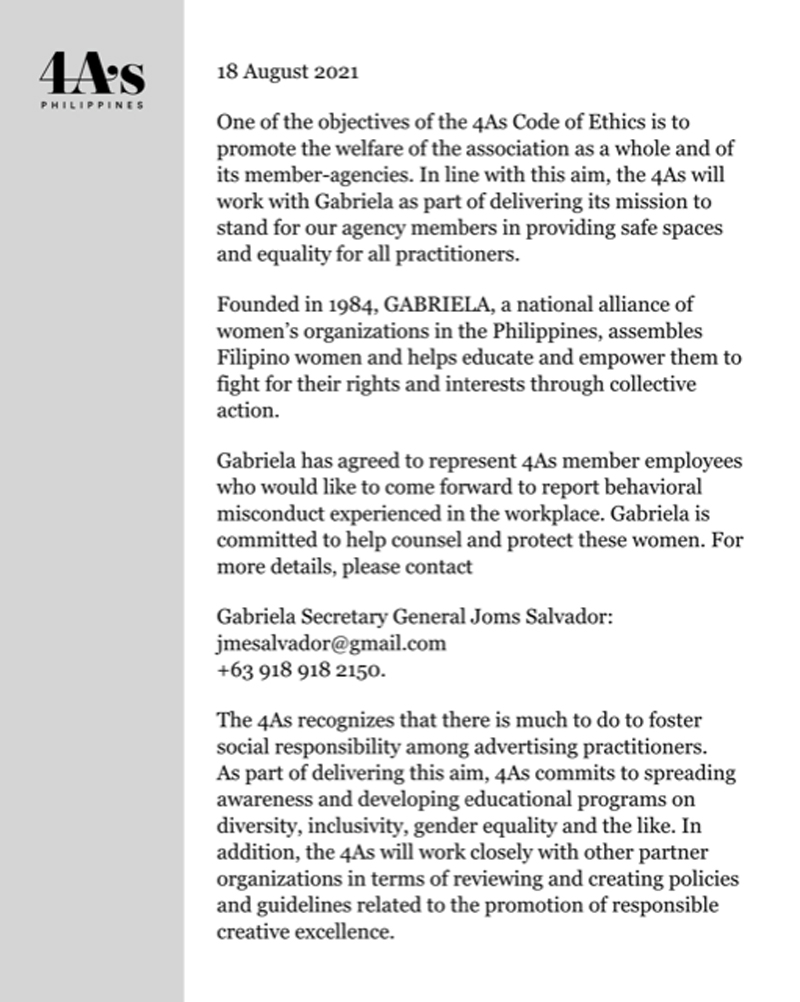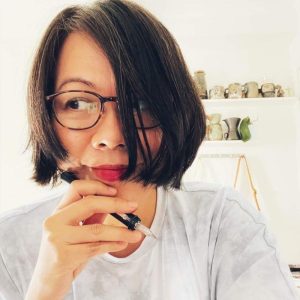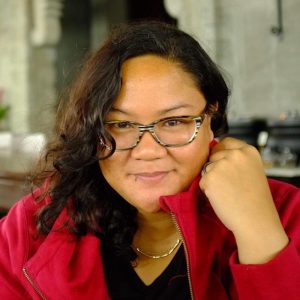MANILA, PHILIPPINES — It began with a controversial ad. Then came a social media post. Now, creatives have shown overflowing support for Denise “Deng” Tee, a decorated creative director of Wunderman Thompson in Hong Kong, after GIGIL’s Herbert Hernandez filed a cyberlibel case against her. Tee had accused Hernandez of sexual harassment at an ad agency party in 2015 in a social media post that was shared over 300 times.

“For years, I told myself the lie that victims tell themselves: It’s my fault. It’s probably just me”, Tee wrote in her post, adding that being the subject of unwelcome advances by Hernandez, a married man who posted “Christian quotes”, was unexpected. “At first, I didn’t perceive it as harassment. I thought, ‘He’s ECD of Y&R, and I’m Saatchi, he can’t do anything to me. This isn’t harassment.’…
(I said it was) a one-time thing. Made excuses for him (“He was drunk”, “Mabait naman pag sober” and, “I’m sure accident lang to”).”
The creative director also bared in her post how she had questioned her self-worth for years after the incident, with Hernandez allegedly insinuating that she had been repeatedly invited on judging panels so that he could get close to her.
Two weeks after the Facebook post went viral among the industry, Tee was slapped with a criminal complaint. Social media became flooded with posts, comments, and messages with the hashtag, #IStandWithDeng, both from those within and outside the industry who condemned Hernandez’ actions.
While Hernandez, like any citizen, is free to seek legal action, what is legal is not always necessarily fair –– and there truly is something disturbing about silencing women who choose to go public with their story by means of lawsuits, demand letters, or NDAs, proving that women continue to be at the mercy of men in power.
We have seen this happen time and again, even after the #MeToo movement has since disrupted industries that remain oblivious to sexual harassment and assault. Dismissing the narrative as one left for the courts to adjudicate grossly overlooks the egregious power dynamics between men and women in the workplace. Hernandez, an agency executive and recognized industry “rockstar”, has cast doubt on the credibility of Tee, a respected creative in her own right. By sitting idly as this case develops, we are sending the following message: If a senior female creative director cannot be taken seriously when she comes forward with her story, what hope is there left for younger, junior creatives who are vulnerable in the industry?
Similarly, reporting the issue as a purely legal matter also turns a blind eye to the very real problem of harassment and sexism that has existed for decades in ad-land. Truly, women have continued to elbow their way into the boys’ club of “Mad Men” –– yet even as they rack up C-suite titles and shiny trophies, they are tarnished by the prevalent bro culture that minimizes women’s talents and capabilities by “taking passes” or “cheap shots”; that willingly sweeps contentious behavior under the rug in the name of “brilliance” and “talent”.
A 4A’s report in the United States revealed that 50% of women in advertising have faced sexual harassment. Even in local shores, stories in advertising are rife with multiple anecdotes and experiences: of “overly touchy” ECDs; of having to send a pretty face to appease clients; of blurred lines and innuendos; of uncomfortable stares and disturbing messages.
RA 7877, the Anti-Sexual Harassment Act of 1995, is in place to protect women from harassment in the workplace. After Tee’s post became widely shared, 4A’s Philippines announced that they were partnering with women’s organization Gabriela for members who would like to come forward about behavioral misconduct. The organization released the following statement on August 18:

But as illustrated by Tee’s story, and many more that are unheard, harassment is hardly a straightforward occurrence. To initiate real action is to recognize harassment in all forms –– and the advertising industry clearly needs to do more in creating truly safe spaces and workplaces for women. Here are thoughts by the industry’s leading ad women on how the industry can move forward beyond hashtags and solidarity messages.
Leigh Reyes, Chief Product Consultant of MullenLowe Treyna

“I have to admit, I’m apprehensive of the implications of a criminal lawsuit being filed against a woman who went public with her story of sexual harassment. I’m worried that people will go back to their Zoom meetings with a sigh of relief, believing that it’s a matter for the courts now, and no one has to say anything anymore.
It is already hard enough to be both the victim and the advocate for your truth. But I can’t help but fear that now, women who need to speak up will forever bite their tongues and swallow their pain and “soldier on,” their wounds papered over with NDAs, unwilling enablers of this systemic silence.
How can we parrot diversity and equality and inclusivity when we cannot even be clear on the outcome we want?
What we want is:
For women to not only NOT be afraid, but to feel EMPOWERED to speak up if they experience bad conduct or sexual harassment.
Why do we want this?
Because it is the right thing to do.
Because an industry that has made more than enough profit from making women feel inadequate still has a long way to go to uplift all women.
Because just because “it didn’t happen in our agency” and “our agency already has guidelines about this” doesn’t mean we shouldn’t care.
Because that we were able to put up with it in the past (“Buti nga yung ibang nanghihipo dyan, pumanaw na”), doesn’t mean women today have to. (That’s like saying, back in the day, our maternal mortality rate was 10%, so what’s a couple of maternal mortalities today? There’s a word for what we want – progress.)
Truth is complicated, the details matter, and the law will have its say. Our position, however, does not need to be complicated. Women deserve a safe space to speak, otherwise no one will speak.”
Pia Roxas Ocampo, freelance creative director:

“Here are some suggestions on what needs to be done for this to be more than a social media thing that will be apologized for, then forgotten, then we go back to the way things were again. Let’s do better than just post on social media that we’re going to do better, shall we?
1) Decry this behavior. Cut ties with perpetrators & enablers. If you are a client, drop any agency that would coddle a sexual harasser or let any incident of sexual harassment be left hush-hush and unpunished.
Prod house? Director? The perpetrators are your friends, I know, but look around you at all the women who need you to be their friend right now too. Are we all just going to read, share, then move on? What are you going to do differently tomorrow?
2) Strengthen anti-sexual harassment policies, and create safe spaces for your women, womyn and everyone in between. Create clear & safe reporting lines & SOPs for sexual harassment incidents.
If you are a CEO, HR person or direct supervisor, and someone tells you they were harassed, don’t dismiss it with “It’ll be a hassle to file a case” or “Ganoon lang sya pag naka-inom”. Enabler po kayo noon, and complicit in the creation of trauma and abuse of power.
3) Be vigilant against the misogynist culture at the root of abuses of power like this. And that goes for us women too. Now that we’re talking about it, chat groups are abuzz with ahensya women going “Oo nga, there was this time..” “I didn’t realize then, but I just remember being uncomfortable”. Pa-#MeToo pero walang nagsasalita, girls? Doesn’t work that way.
Even we have been complicit by keeping silent, not wanting to be “not fun”, or just brushing it off as another boys club thing. It’s so ingrained, we don’t even realize we’re just living with it, up til it gets to a soul crushing point like this.
Deng Tee, we never did cross paths, but THANK YOU for your bravery. Thank you for speaking up, sharing your story and [naming] names. You’ve just spoken up for every woman who got listed in the ahensya boys’ top 10 list, got their cleavage ogled by the DOM client while presenting, got onced-over & leered at by their creative director, got roped into a date on the pretense of an interview, or had to fend off a pass at a party.
I think of the young creatives I ushered into the industry & pray they never had to face anything like this. It’s a (mostly) great industry, and we’re mostly really awesome people in it. I hope we can make it truly safe for everybody.”
Corey Cruz, Creative Director, Wunderman Thompson Singapore

“I’ve never been prouder of you Deng Tee, even if you win an even bigger haul of awards than you have now.
Agencies that know of s**t like this happening—then choose to sweep it under the rug by making the person who filed a report sign an NDA instead, or have HR say “It’ll be a hassle if you press charges,” or make it a toxic work environment that the harassed person has no choice but to resign—should also be held accountable. I don’t know how y’all go to sleep at night knowing you’re complicit in this. Sexual harassment is a crime and it is your duty to prevent it, and you are in fact liable if no action is taken or you try to make it hush hush https://pcw.gov.ph/republic-act-7877-anti-sexual-harassment-act-of-1995/
I hope anyone else this happened to, and who are keeping quiet because of an NDA, go check with a lawyer because NDAs can’t be used to cover up felonies and misdemeanors. Now is the time to speak up, friends.
P.S. Dear agency leaders reading this.
So some people have messaged me that they want to speak up about their own harassment from other CDs, but they are afraid to, for fear that they will be seen as “unhireable troublemakers.” Um hey, the real troublemaker is the harasser who should from hereon become unhireable, and who should be punished in the full extent of the law.
I hope some of you will step up to say that you do not condone this. That you are not an enabler. And that you would gladly hire these people brave enough to speak out about the sexual predators in our industry. We need our workplaces to be safe spaces. Even if virtual. Nobody wants unsolicited sleazy texts and pics when they’re simply trying to work.
—
P.P.S. Why am I so riled up about this?
Because I was harassed, and it took having a lawyer file some serious looking papers and mention the word “deportation” for the harasser to get fired. It was ages ago but I still have the memory of looking up from my desk to see him staring at me through the window, even after I had asked his supervisors to not have him contact me anymore. This kind of s**t never leaves, which is why we should do our best to prevent it.”
If you or anyone you know has suffered sexual harassment in the workplace, please get in touch with Gabriela General Secretary Joms Salvador: [email protected]/+63918 918 2150
adobo stands with women in the workplace and advocates equality, diversity, and safe spaces for all in the industry. Our lines are open for anyone who wishes to come forward with their story, and we are committed to help preserve their anonymity.









